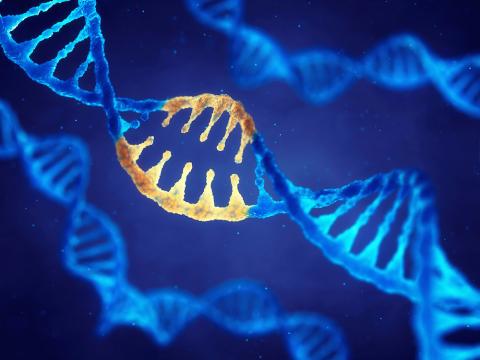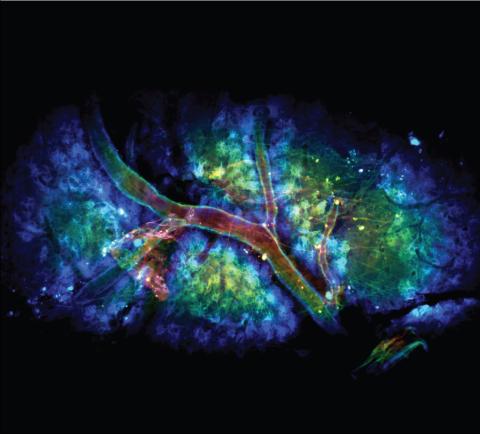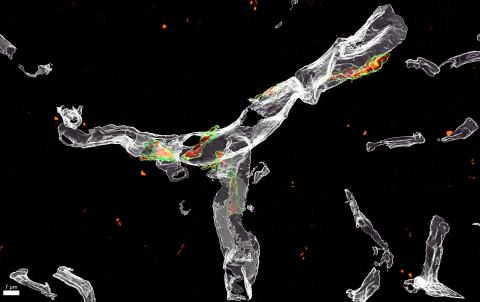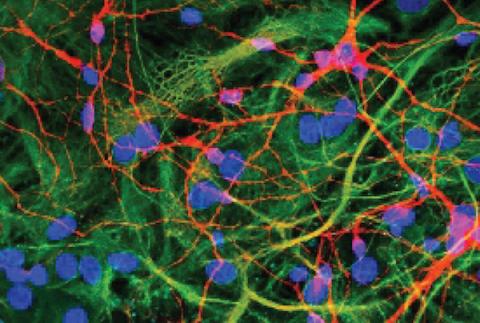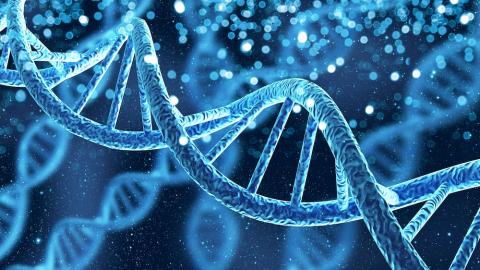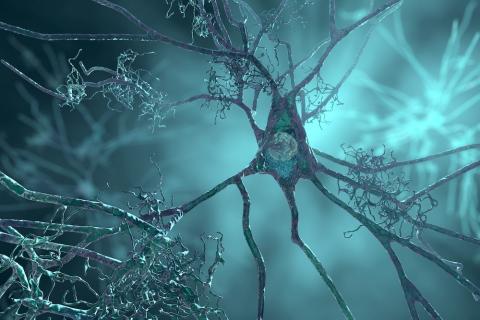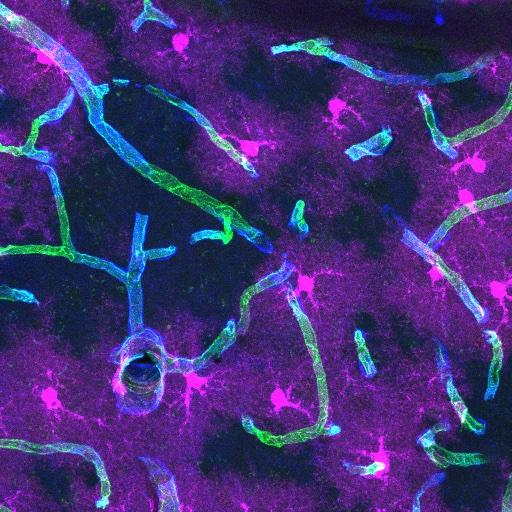
Astrocytes. Credit: Blanca Diaz Castro
Glia, which include astrocytes, oligodendrocytes, and microglia, have been increasingly implicated in the development and progression of neurodegenerative conditions. These non-neuronal cells play a critical role in supporting neurons and maintaining brain health. Astrocytes serve many functions in the brain, including neurotransmitter and ion homeostasis, energy metabolism, regulation of blood brain barrier integrity, and structural support of neurons. The primary role of oligodendrocytes is in the production of myelin to insulate axons in the central nervous system. Microglia mediate the immune response in the brain and clear debris such as dead cells, redundant synapses, and protein aggregates.
While glia are essential for healthy brain function, they can be a ‘double-edged sword’ in neurodegeneration. In early disease stages they have an important neuroprotective role, however, chronic activation of astrocytes and microglia can promote neuroinflammation and neurotoxicity. There is a complex interplay between glia and neurons, both in health and disease, and teasing apart the interactions of these cells at different stages is essential in understanding disease pathogenesis and progression.
The Glia thematic network has an interdisciplinary approach bringing together a diverse range of expertise from across the UK DRI. From state-of-the-art disease modelling using co-culture and organoid systems, to innovative research producing and analysing transcriptomic and proteomic datasets, our researchers aim to further understand and therapeutically target glia to mitigate their detrimental effects in neurodegeneration.
The key priorities of the Glia thematic network include:
- Elucidating the role of astrocytes, microglia, and oligodendrocytes in neurodegeneration
- Understanding interaction mechanisms between glia and neurons
- Generation of research tools and therapies specifically targeting glia
- Facilitating accessibility and cross-comparison of glia datasets e.g. transcriptomics and proteomics

